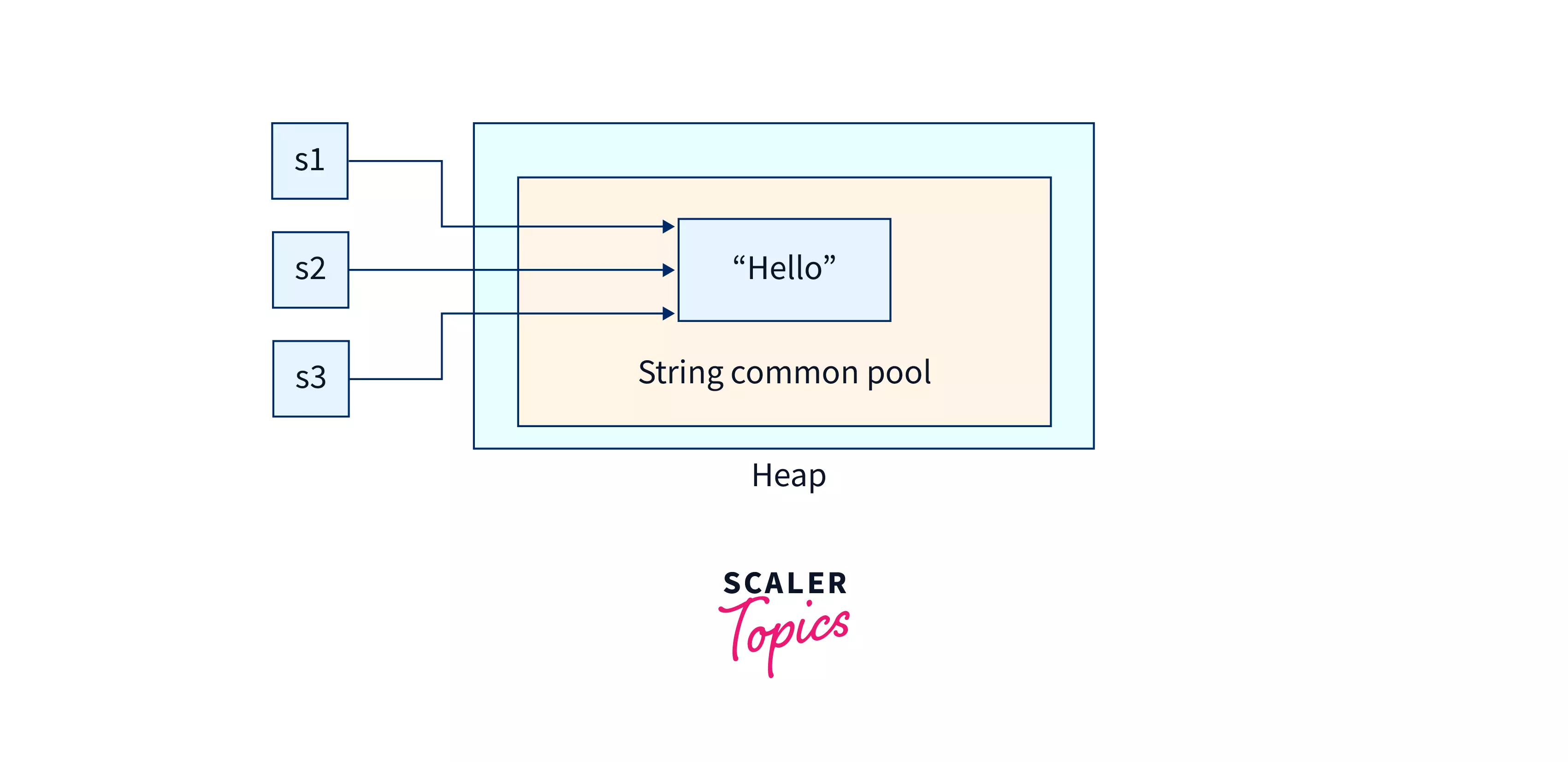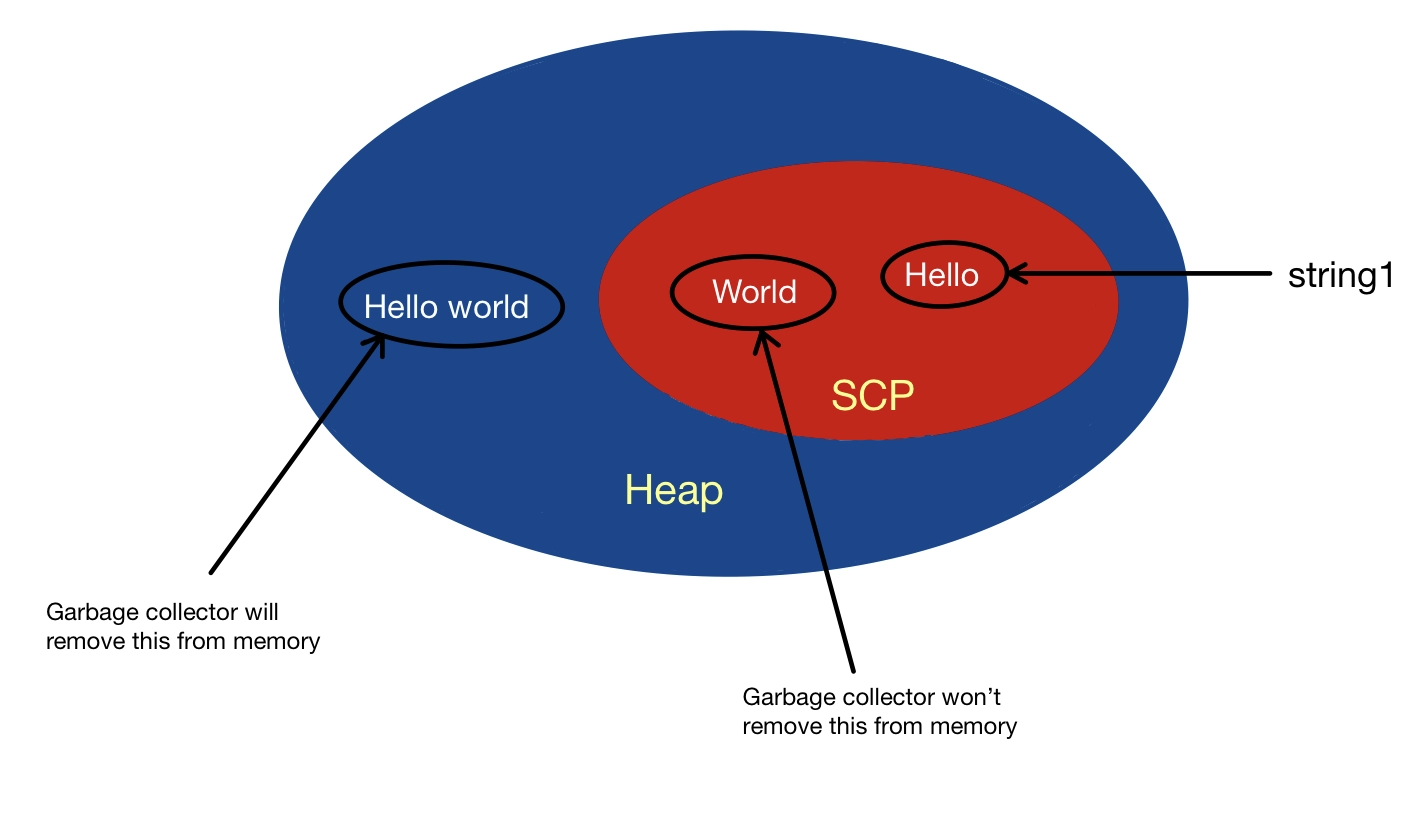Why Are Strings Immutable in Java? Comprehensive Guide for Beginners
Why Are Strings Immutable in Java? Comprehensive Guide for Beginners
Blog Article
Immutable Strings: A Secret Element in Ensuring Data Consistency and Dependability
In the world of data monitoring, the value of immutable strings can not be overstated. These constant series of personalities play a crucial function in supporting the honesty and accuracy of information within systems. By preserving a state of immutability, data uniformity is made sure, promoting a foundation of integrity whereupon essential procedures count. The idea of immutable strings goes beyond mere formality; it is a cornerstone in the complex web of data governance. As we explore the benefits, execution techniques, and practical applications of unalterable strings, a more clear image arises of their essential nature in guarding the digital landscape.
The Concept of Immutable Strings
Immutable strings, a basic idea in programs, refer to strings that can not be customized once they are produced. In essence, when a string value is designated, any procedure that appears to modify the string actually creates a new string. This immutability ensures data consistency and dependability in applications, as it stops unanticipated modifications to the original data.
Advantages in Information Uniformity

Data uniformity is critical in numerous elements of software advancement, consisting of data source monitoring, multi-threaded environments, and dispersed systems (Why are strings immutable in Java?). Unalterable strings contribute dramatically to achieving this consistency by protecting against information corruption as a result of simultaneous gain access to. In scenarios where numerous procedures or threads connect with the very same data at the same time, immutable strings function as a guard versus race problems and synchronization issues
Moreover, the immutability of strings streamlines debugging and screening procedures. With immutable strings, developers can rely on that as soon as a string is set, it will remain unmodified, making it much easier to trace the resource of mistakes and ensuring that test instances produce consistent results. This reliability in information taking care of eventually leads to extra robust and secure applications.

Applying Immutable Strings
Making sure the immutability of strings calls for a thoughtful technique to their implementation in software growth. One key approach is to make string courses in a way that stops modifications once a string item is developed. By making strings immutable, programmers can boost information uniformity and integrity in their applications.
To implement unalterable strings properly, designers need to favor creating new string things instead of modifying existing ones. This method guarantees that once a string is designated a value, it can not be changed. In addition, any procedure that appears to modify the string should produce a brand-new string with the wanted changes as opposed to modifying the original.
Furthermore, making use of immutable strings can streamline concurrency administration in multi-threaded environments. Given that immutable strings can not be altered after creation, they can be securely shared among several threads without the risk of data corruption.
Duty in Dependability Guarantee
In software application growth, the application of unalterable strings plays an essential duty in ensuring the integrity of data operations. Immutable strings, when produced, can not be customized, making sure that Read More Here the data they represent remains consistent throughout the application's execution. This immutability home gives a degree of assurance that the information being refined will not be inadvertently changed, bring about unforeseen results or mistakes in the system.
By incorporating immutable strings into software program layout, programmers find more information can boost the dependability of their applications by decreasing the threats related to mutable information - Why are strings immutable in Java?. Unalterable strings help in stopping information corruption or unintentional alterations, which can be especially essential when taking care of delicate info or when data honesty is paramount
Furthermore, making use of immutable strings streamlines simultaneous processing, as several threads can safely access and share string data without the threat of one string modifying the web content while an additional reads it. This element adds substantially to the general reliability of the software program system, ensuring foreseeable and regular behavior in information dealing with operations.
Applications and System Integration
The seamless integration of unalterable strings into numerous applications and systems is crucial for ensuring robust information consistency and integrity across diverse technological settings - Why are strings immutable in Java?. Immutable strings play a critical duty in boosting the stability of data exchanges and interactions within complicated software program communities. By incorporating immutable strings into applications, developers can mitigate the threats associated with data meddling, unauthorized adjustments, and unintentional alterations, consequently fortifying the general security pose of the system
In the context of system assimilation, unalterable strings act as a fundamental component for establishing secure interaction channels and promoting smooth data transfers between various parts. Their immutable nature ensures that information transferred between systems stays proven and unchanged, minimizing the possibility of disparities or mistakes that could compromise the integrity of the whole system. Furthermore, unalterable strings can enhance interoperability between inconsonant systems by supplying a standardized format for information depiction, making it possible for more efficient information processing and exchange procedures throughout interconnected systems. By taking on immutable strings in applications and system assimilation processes, organizations can fortify their information framework and promote the dependability and consistency of their details properties.
Conclusion
Finally, unalterable strings play an essential function in preserving information uniformity and integrity in various applications and system combinations. By ensuring that strings can not be transformed when produced, the stability of information is protected, reducing the risk of inconsistencies and errors. Executing immutable strings can considerably enhance the integrity of systems, inevitably leading to more trustworthy and precise data processing.

Report this page